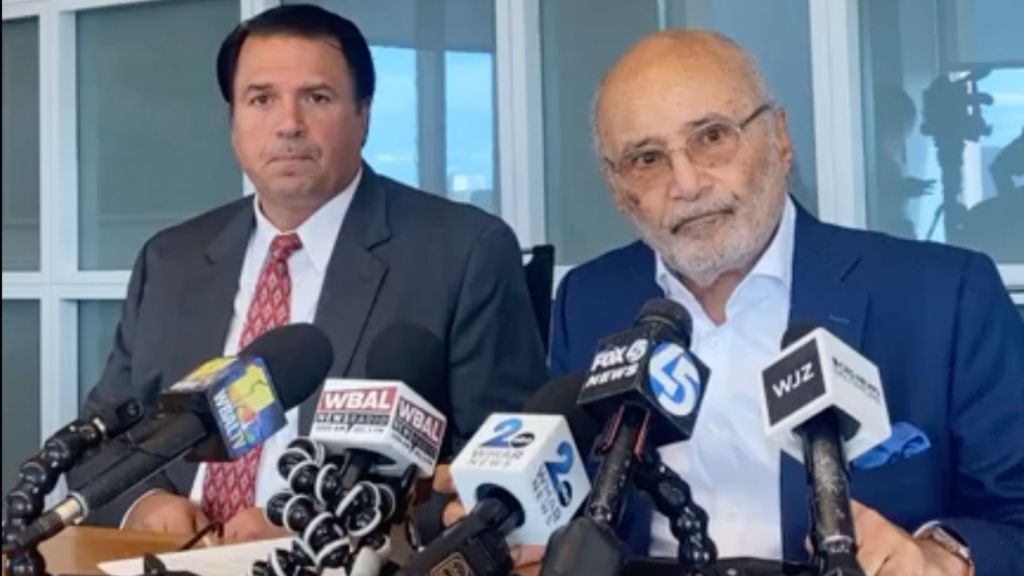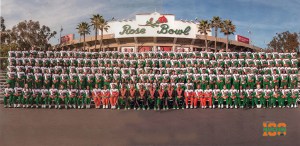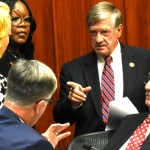By Tashi McQueen
AFRO Staff Writer
tmcqueen@afro.com
Attorneys William “Billy” Murphy Jr., Jason Foster and Ronald Richardson on Sept. 19 detailed the significance of the U.S. Department of Justice’s (DOJ) $100 million lawsuit against the owner of the Dali cargo ship, which crashed into a Baltimore-area bridge, causing its collapse on March 26. The results of the litigation, filed on Sept. 18, could impact the attorneys’ impending lawsuit on behalf of their client, Damon Davis.

Photo Credit: AFRO Photo/Tashi McQueen
Davis is a road construction inspector who survived the toppling of the Francis Scott Key Bridge, a major thoroughfare that spans the Patapsco River and part of the Baltimore Harbor. The attorneys have not yet filed Davis’ lawsuit but assured the press that they will do it by Sept. 24.
Davis worked closely with the six workers who died in the Key Bridge collapse.
“He knew these men,” said Murphy at a press conference in Baltimore on Sept. 19. “They all knew each other; they had to work together as a team.”
Davis was working on the bridge when the collapse occurred. He was about to take his break when he felt the rumbling of the bridge.
“Our client approached his car to take his break along with the other individuals who were in the trucks when he felt the bridge collapsing,” said Richardson. “He began running. He took a giant leap to make it to that part of the bridge that was still standing.”
The attorneys explained how the DOJ’s civil claim could benefit Davis’ impending case against Dali owner Grace Ocean Private Ltd. and manager Synergy Marine Group, both of Singapore.
“One, it helps in the first phase of litigation to defeat the claim of limitation of liability,” said Foster. “Then when we actually get into presenting our client’s claim for his damages and his losses, it will be tremendously helpful in that regard as well. It essentially sets the tone for the litigation.”
Foster said the DOJ’s case could help establish entitlement to compensatory damages for Davis’ losses and “provides an avenue to recover damages above that, called punitive damages.”
Murphy explained punitive damages as the DOJ asking for “a huge amount of money to punish this ship owner and everybody else” who was responsible for the tragedy.
“They’ve gone further than making sure that everybody is made whole,” said Murphy.
In the DOJ’s lawsuit, the agency claims that because of the “unseaworthy condition of the ship, none of the four means available to help control the Dali—her propeller, rudder, anchor, or bow thruster—worked.”
The DOJ also alleges that the crash was avoidable and holds the ship owner and operator responsible for negligence. The suit is seeking $100 million in cleanup costs, plus punitive damages.
“There were all kinds of failures,” said Murphy. “People just didn’t do their jobs.”
The post Attorneys discuss DOJ’s $100M lawsuit against Dali ship owner appeared first on AFRO American Newspapers.











